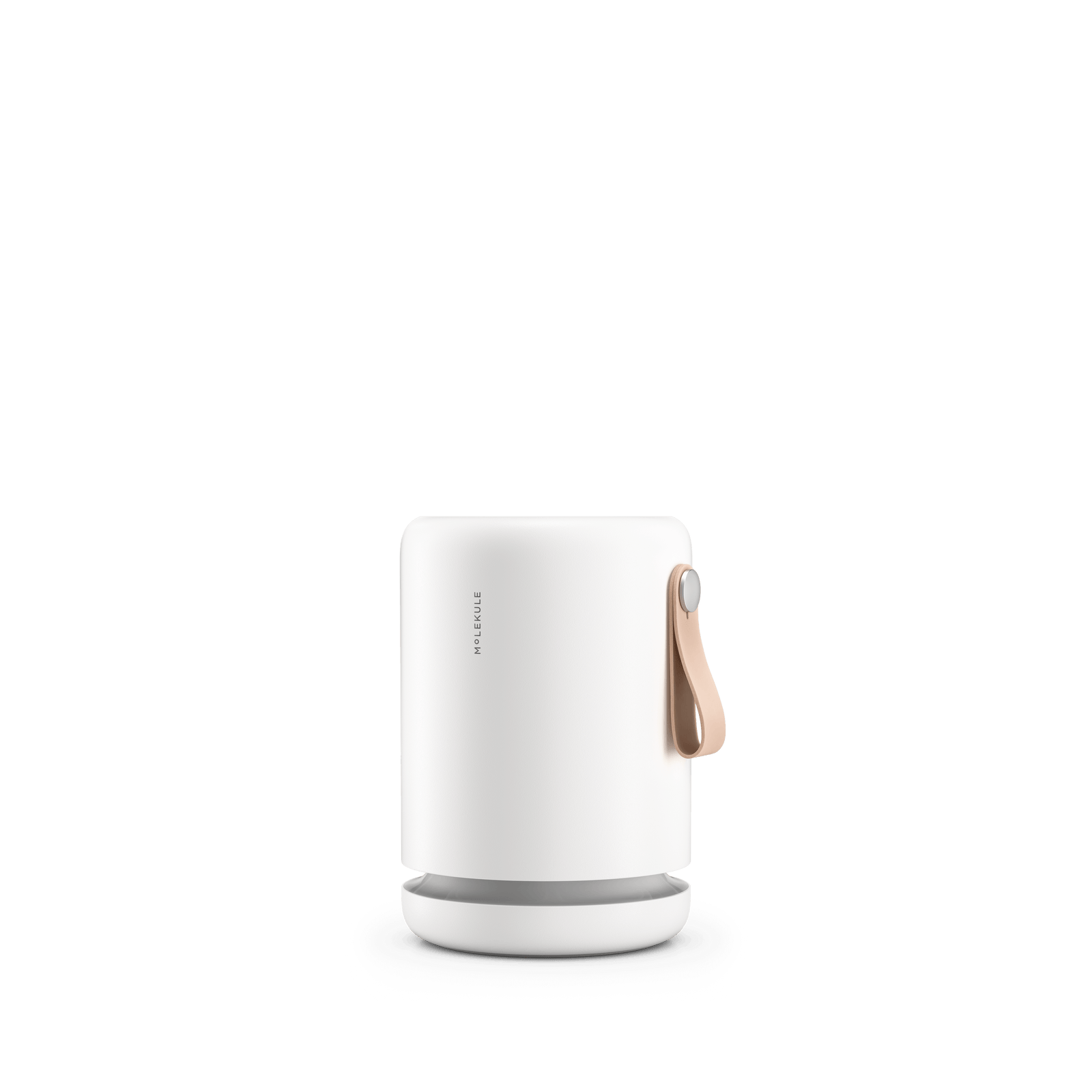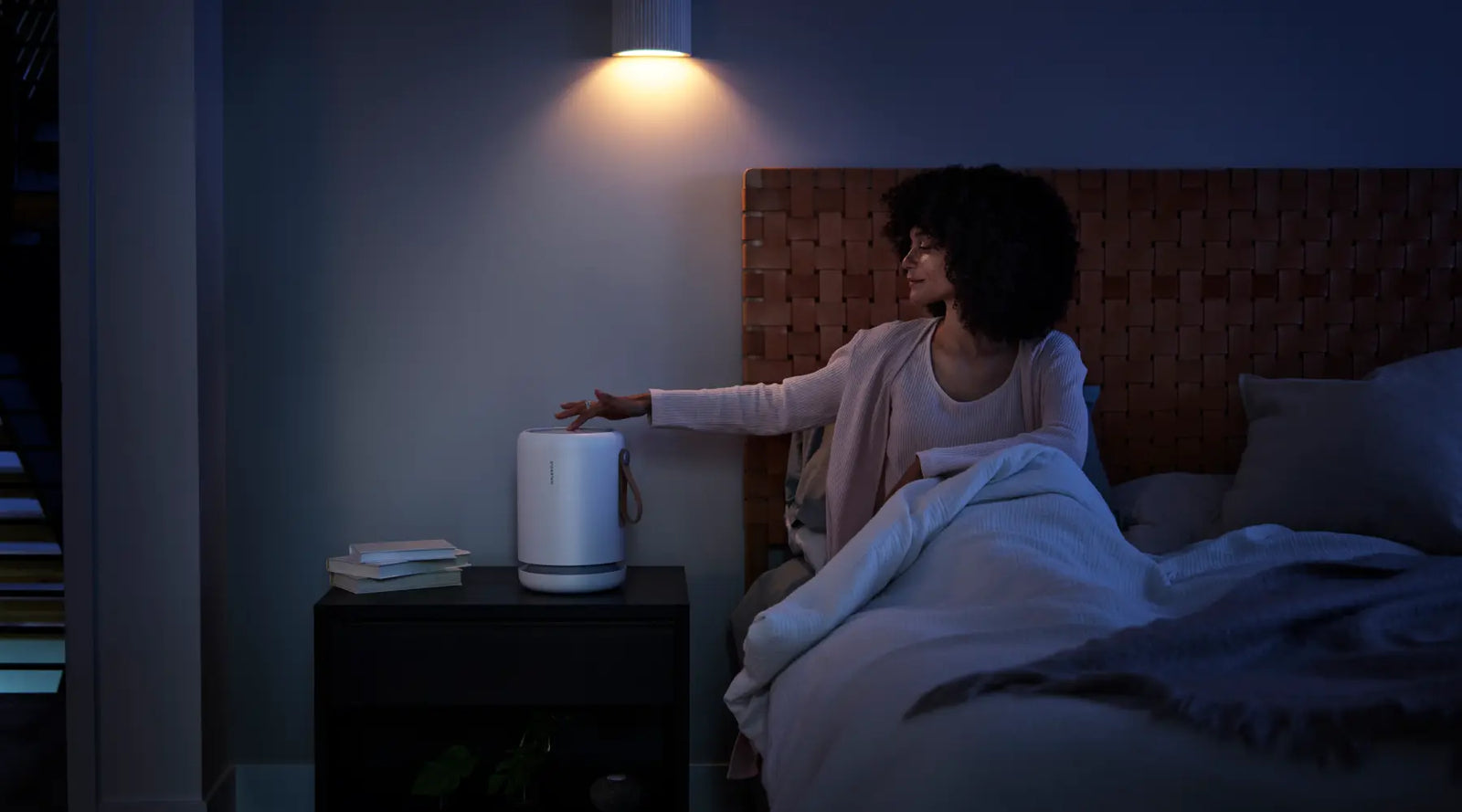Refreshing sleep is the best way for people with allergies to recharge for the next day. Unfortunately, allergens in your home may be causing you to wake up each morning feeling more exhausted than the night before. If you experience allergy and asthma symptoms, chances are that you are taking steps to relieve your symptoms while you are awake. However, you may be overlooking some simple, effective steps to help reduce the effects of pollen and other allergens on your body during the night.
Allergy factors affecting your sleep
If you suffer from asthma and allergy symptoms, you probably already know first-hand that allergens in your home can prevent you from getting a good night’s sleep. Allergy symptoms may cause you to sleep for shorter lengths of time and reduce the quality of sleep that you do get, meaning that you may have less energy to deal with your symptoms during the day.
How allergies may affect your sleep quality
Loss of sleep can lead to daytime fatigue and even contribute to missed school or work days and lower productivity. Studies have found a convincing link between allergies and sleep problems. In a large survey, about 1 in 2 patients reported that their allergies affected their sleep. The percentage increases dramatically when discussing children, who need high-quality sleep for their learning and development. One research study found that about 9 in 10 children with allergies had sleep problems.
Nighttime symptoms like nasal congestion, sneezing, itchy eyes and runny nose may be to blame. This is partly due to changes in your histamine and cortisol levels while you sleep that can affect the way that your body responds to the presence of allergens. Additionally, laying down for hours at a time can exacerbate asthma and allergy symptoms by causing your body to increase mucus production and nasal congestion (Koinis-Mitchell et al., 2012).
The fatigue caused by allergen-related sleep troubles may cause difficulty concentrating, lower productivity and can even impair cognitive abilities and fine motor skills, meaning that people with asthma and allergies may need to take extra steps to keep their symptoms from affecting their quality of life.
How your day may affect your night
Any time you and your family commute to work or school, your children play outside, or your furry friends run around the backyard, you increase the chances of bringing pollen into your home. You know that airborne pollen can end up in your respiratory system after being inhaled, but did you know that tiny pollen grains can hitch a ride on your hair, clothes and shoes? That pollen can ultimately end up in your house and cause you and your family to have allergy symptoms indoors.
Airborne pollen is often too small to be seen by the naked eye, but that does not mean that it is not present. In fact, there is a whole field of study devoted to forensic pollen analysis. Because each region is home to different types of pollen, experts in this field can figure out where a person has been by identifying the unique pollen print—like a fingerprint—on their clothes. These pollen allergens that cling to your clothes, hair and pets can easily find their way inside your home and can affect your allergies, even while you sleep.
Allergens are hiding in the bedroom
Allergens like pollen, mold and dust mite droppings can trigger symptoms. When these allergens are hiding in your bedroom, they can negatively impact your quality of sleep. In fact, research has shown that dust mite allergens found in the bedroom, often in sheets and bedding, are highly associated with poor sleep.
If indoor pollen collects inside your bedroom, it likely can influence your allergy symptoms while you sleep. Surprisingly, studies like this one have shown that pollen concentrations in your home can be up to 2 to 5 times higher than outdoor pollen levels. This finding supports the EPA’s statement that levels of airborne pollutants (including allergens) is about 2 to 5 times greater inside than outside.
Steps to better, refreshing sleep for allergy sufferers
After learning about the ways that pollen, dust mites and other allergens can affect your sleep, you may wonder what, if anything, can be done to protect yourself during the night. Fortunately, you do not have to let allergy and asthma symptoms negatively impact your quality of life. By following the helpful tips below, you can take the steps you need to get the good night’s sleep that you deserve.
#1 Prevention: The less pollen brought inside, the better
The first step is to prevent as much pollen and other allergens from entering your home. The National Institutes of Health (NIH) recommends closing windows (especially while you sleep) and using an air conditioner to cool your home instead.
You can also try changing your clothes after you have been outside, wiping pets before they enter the home, and taking your shoes off at the door to prevent tracking in dust and pollen. It is also a good idea to shower before you sleep to prevent any pollen in your hair from collecting on your bed linen.
#2 Source control: Get rid of pollen and other allergens in your room
The EPA recommends eliminating the source of pollution for better indoor air quality. To help keep your allergies from affecting your quality of sleep, try getting rid of pollen, dust and mold sources in your bedroom by using the following helpful tips.
- Regularly wash your bed linens in hot water to get rid of dust mite waste. If your children are sensitive to dust mites, their stuffed animals should be washed regularly as well. To further protect your bedroom from dust mites, consider adding dust mite covers to your pillows and mattress.
- Pay attention to which surfaces in your house tend to get damp—such as bathroom walls and windowsills—and clean them regularly to prevent mold growth. Remove any visible signs of mold or mildew.
- Keep relative humidity levels in your home between 30-50%. This will help reduce dust mites as well as prevent the growth of mold and mildew.
- To avoid releasing dust and pollen back into the air, dust regularly with a damp mop or and use a vacuum with a HEPA filter or other microfilter bag to clean your carpet. If possible, get rid of any upholstered items or rugs that cannot be washed regularly.
#3 Exercise and general health tips for better sleep habits
In addition to getting rid of household allergens at their source, you can also make certain lifestyle changes to help improve the quality of sleep that you get each night. For example, studies have found that adding regular physical activity to your daily routine can help increase both the quality and duration of your sleep (Dolezal, et. al, 2017). The U.S. Department of Health and Human Services recommends the following additional actions to promote healthy sleep:
- Plan exercise for earlier in the day if you can, to avoid strenuous physical activity too close to bedtime.
- Reduce your caffeine intake, especially later in the day. This can include caffeine from coffee, soda and tea.
- Drink alcohol in moderation. Alcohol can keep you from getting restful sleep, so women should drink no more than one drink each day and men should drink no more than two.
- Make sure that your bedroom is an environment that promotes healthy sleep. This means keeping the room as dark and quiet as possible. Limit screen time before bed and consider keeping electronic devices out of the bedroom.
- Try going to bed at the same time and getting the same amount of sleep every night.
#4 Clean air technology for allergen control while you sleep
If you still experience nighttime symptoms and have poor sleep quality, you may consider an additional step. Sometimes, allergists recommend an air purifier to their patients as part of a holistic approach to help control allergens. Research has shown that an air purifier placed in the “sleep breathing zone,” or right by the bedside, appears to help with sleep (Hacker & Sparrow, 2005).
Our solution for refreshing sleep
Taking steps to reduce the levels of pollen and other allergy-producing particles like dust mites in your bedroom may help, as well as following general health tips for better sleep habits. In addition, you may consider using an air purifier in your bedroom while you sleep. The Molekule air purifier is different from other air purifiers because it can destroy allergens like pollen, mold and dust mite particles, instead of simply collecting them on filters.
Using Molekule as part of a preventive approach may help you wake up feeling more like yourself and ready to take on the day. Good sleep is vital to you and your family’s well-being, and taking a holistic approach can make a big difference for sleep.












